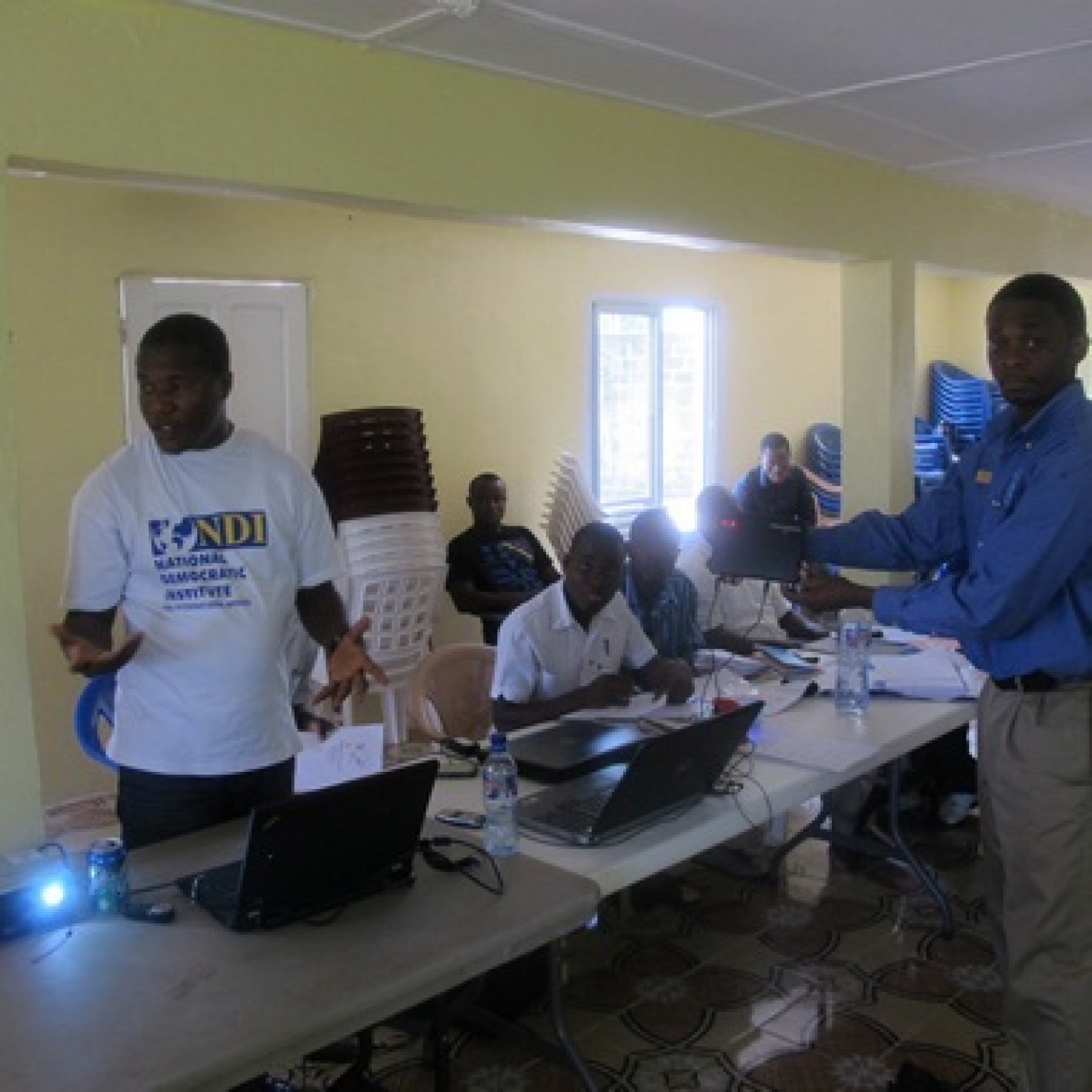
SHARE
In Liberia, where more than 40 percent of adults are illiterate and where citizens who live outside of the capital, Monrovia, have little or no access to the Internet or television, radio is often the only reliable source of news. Traditionally, getting news to radio stations involves recording it onto CDs, which then need to be driven to the stations. This is both expensive and time consuming, and stories are usually out of date by the time they are aired. As a result, informing citizens about political activity in Liberia can be a slow and costly endeavor, and voters often are not up to date on what their government is doing.
To help address this problem, NDI is working with the Liberian legislative press bureaus and lawmakers to use an audio clip distribution software called Freedom Fone. It makes it faster, easier and cheaper for local radio stations to gather and transmit news to rural communities, which helps constituents keep track of what their representatives and senators are doing.
Freedom Fone, which was developed in Zimbabwe, works over mobile phone networks so users do not need access to the Internet. People can upload sound bites from their phone in one part of the country, and others can download, record and air these clips in another part of the country.
Freedom Fone uses Interactive Voice Response (IVR) technology. Users call a computer, which responds to their voices or numbers they push on the phone’s keypad. Once the caller has gone through the IVR, he or she can upload or download sound bites to or from the interactive audio library (IAL).
NDI has collaborated with the International Research & Exchanges Board (IREX) on the Freedom Fone project in Liberia since May. In June, the Institute presented an overview of Freedom Fone to IREX’s 24 rural radio station partners at a workshop in Gbarnga, Bong County, in the northeastern part of the country.
In December, NDI organized and ran two training events on Freedom Fone, the first in Gbarnga where radio journalists learned how to call the IAL, record the stored sound bites and play them back to their radio audience. The second, for legislative press officers at the capitol building in Monrovia, focused on how to produce stories and sound bites and upload them to the IAL.
At the sessions, participants discussed how Freedom Fone could help engage citizens, strengthen the democratic process and improve public awareness about legislative actions, votes and policy debates. By using radio to bridge the technology gap, they said, the legislature could increase the number of people included in the country’s political dialogue to help create a more transparent and democratic legislative process.
The project was made possible with support from the United States Agency for International Development (USAID).
Read more:
- Youth Development Seminar Focuses on Job Creation for Liberia's Youth
- Liberian Lawmakers Oversee Budget with Eye Toward Women and Girls
- In Liberia, Training Staff for Stronger Lawmakers
Published February 5, 2013


